 Told in the form of a fairy-tale, this story by Isak Dinesen (aka Karen Blixon) includes the rather unusual suggestion that manhood comes with killing someone, kissing a girl and accepting one’s destiny. A young sailor is hurrying to visit a girl who the previous night had promised him his first kiss. After accidentally killing an aggressive Russian sailor who tries to delay him he flees, gets his kiss, and is saved from an angry mob by a grateful shape-shifter returning a good deed. Themes include innocence, romance, coming of age, destiny, karma (good deeds returned), the supernatural. More…
Told in the form of a fairy-tale, this story by Isak Dinesen (aka Karen Blixon) includes the rather unusual suggestion that manhood comes with killing someone, kissing a girl and accepting one’s destiny. A young sailor is hurrying to visit a girl who the previous night had promised him his first kiss. After accidentally killing an aggressive Russian sailor who tries to delay him he flees, gets his kiss, and is saved from an angry mob by a grateful shape-shifter returning a good deed. Themes include innocence, romance, coming of age, destiny, karma (good deeds returned), the supernatural. More…
Category Archives: Short Stories
At the Jim Bridger
 In this story by Ron Carlson, a man regrets having used a censored version of a story about how he saved the life of a hiker to seduce a woman. The hiker was suffering from hypothermia and, trapped in a small tent during a blizzard, the only way to warm him up was to lay naked together in the same sleeping bag. Nature took its course and, although the hiker either isn’t bothered by what happened or doesn’t remember, the protagonist has trouble coming to terms with it. Themes include marriage/relationships, male bonding, fatherhood, betrayal, guilt. More…
In this story by Ron Carlson, a man regrets having used a censored version of a story about how he saved the life of a hiker to seduce a woman. The hiker was suffering from hypothermia and, trapped in a small tent during a blizzard, the only way to warm him up was to lay naked together in the same sleeping bag. Nature took its course and, although the hiker either isn’t bothered by what happened or doesn’t remember, the protagonist has trouble coming to terms with it. Themes include marriage/relationships, male bonding, fatherhood, betrayal, guilt. More…
Fountains in the Rain
 In this quirky story by Yukio Mishima, an arrogant young man courts, seduces and sleeps with a woman. He has no feelings for her, and does so purely for the “pleasure” of seeing the reaction when he says to a woman for the first time, It’s time to break it off!. Her immediate reaction is a river of tears. When he gets up to leave, she follows, still crying uncontrollably. To dump the tearbag, he decides to humiliate her in front of the royal fountains. The result is not what he expected. Themes include “manliness”, manipulation and deception, cruelty, love. More…
In this quirky story by Yukio Mishima, an arrogant young man courts, seduces and sleeps with a woman. He has no feelings for her, and does so purely for the “pleasure” of seeing the reaction when he says to a woman for the first time, It’s time to break it off!. Her immediate reaction is a river of tears. When he gets up to leave, she follows, still crying uncontrollably. To dump the tearbag, he decides to humiliate her in front of the royal fountains. The result is not what he expected. Themes include “manliness”, manipulation and deception, cruelty, love. More…
The Drowned Giant
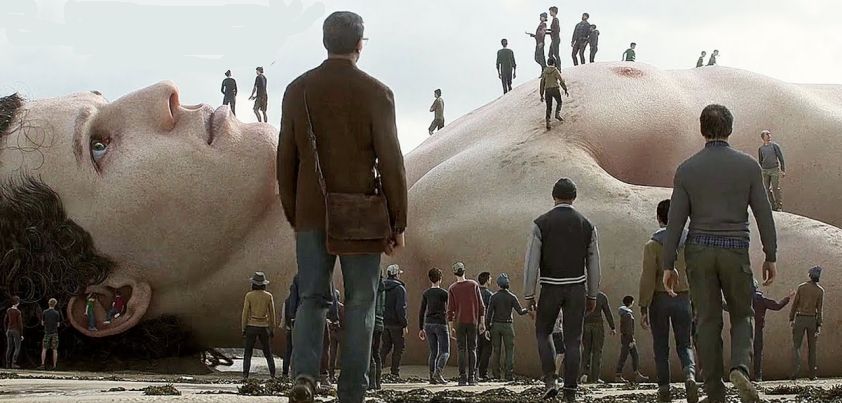 In this story by J. G. Ballard, the body of a giant man is dehumanized because of its otherworldly size. Left to rot on a beach, it first becomes a tourist attraction and later a source of exploitation as various body parts are taken for commercial purposes or as souvenirs. The narrator, who is clearly disturbed by the disrespectful way the body is treated, perceives it as having a transcendent, Homeric quality. This begs a fascinating question: What does it take to be considered human? Themes include humanity, identity, mortality, curiosity, fear (of a potentially superior race), fame, exploitation. More…
In this story by J. G. Ballard, the body of a giant man is dehumanized because of its otherworldly size. Left to rot on a beach, it first becomes a tourist attraction and later a source of exploitation as various body parts are taken for commercial purposes or as souvenirs. The narrator, who is clearly disturbed by the disrespectful way the body is treated, perceives it as having a transcendent, Homeric quality. This begs a fascinating question: What does it take to be considered human? Themes include humanity, identity, mortality, curiosity, fear (of a potentially superior race), fame, exploitation. More…
The Crooked Man
 Set 500 years in the future, this story by Charles Beaumont envisions a dystopian world where homosexuality is the norm, heterosexuality is not only frowned upon but illegal, and children are tube-born and machine-nursed. Although the male protagonist is strongly attracted to a young woman, both struggle to deal with physical contact due to their social conditioning. As they cannot show affection in public, she disguises herself and they meet in a sleazy “men only” bar. In the end, she gets what she came for and his concerns are resolved. Themes include oppression, prejudice, sexual orientation, depravity.
Set 500 years in the future, this story by Charles Beaumont envisions a dystopian world where homosexuality is the norm, heterosexuality is not only frowned upon but illegal, and children are tube-born and machine-nursed. Although the male protagonist is strongly attracted to a young woman, both struggle to deal with physical contact due to their social conditioning. As they cannot show affection in public, she disguises herself and they meet in a sleazy “men only” bar. In the end, she gets what she came for and his concerns are resolved. Themes include oppression, prejudice, sexual orientation, depravity.
The Devil and Daniel Webster
 In this American tall tale by Stephen Benét a hapless farmer sells his soul to the devil in exchange for seven years of good luck. When the time comes to “pay up”, he asks Daniel Webster, famed lawyer, orator and all around good guy, to help him get out of the deal. After attempts at compromise fail, Webster insists on a trial according to American law. Although the devil whips up a stacked judge and jury comprised of dead scoundrels, Daniel’s speech about American values wins the day.. Themes include patriotism, temptation, good vs. evil, “neighborliness” (helping others), and righteousness. More…
In this American tall tale by Stephen Benét a hapless farmer sells his soul to the devil in exchange for seven years of good luck. When the time comes to “pay up”, he asks Daniel Webster, famed lawyer, orator and all around good guy, to help him get out of the deal. After attempts at compromise fail, Webster insists on a trial according to American law. Although the devil whips up a stacked judge and jury comprised of dead scoundrels, Daniel’s speech about American values wins the day.. Themes include patriotism, temptation, good vs. evil, “neighborliness” (helping others), and righteousness. More…
The Indian Uprising
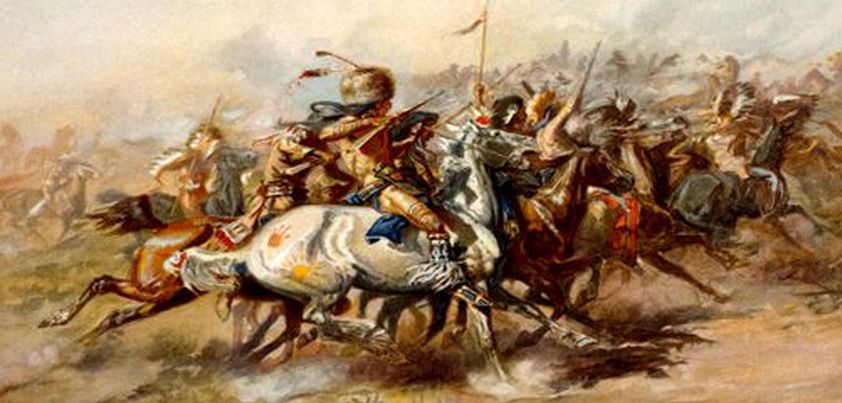 If you like stories with a traditional plot, this experimental story from Donald Barthelme may not be for you. Having said this, many reviewers rank it as one of Barthelme’s best. The narrator is the leader of a city besieged by “Comanches”. Interspersed with recounting the battle he shares random, disjointed memories, often expressed in unconventional language. A major theme is rebellion: the “Indians” are attacking the city, many of its unhappy citizens revolt and help them, and his girlfriend supports the Indians and wants nothing more to do with him. Other themes include violence, male-female relationships, deception and betrayal. More…
If you like stories with a traditional plot, this experimental story from Donald Barthelme may not be for you. Having said this, many reviewers rank it as one of Barthelme’s best. The narrator is the leader of a city besieged by “Comanches”. Interspersed with recounting the battle he shares random, disjointed memories, often expressed in unconventional language. A major theme is rebellion: the “Indians” are attacking the city, many of its unhappy citizens revolt and help them, and his girlfriend supports the Indians and wants nothing more to do with him. Other themes include violence, male-female relationships, deception and betrayal. More…
Roses, Rhododendron
 This enchanting story by Alice Adams is about friendship, love (for people and places), and marriage. The narrator recalls how, after she and her mother moved from Boston to North Carolina, a lifelong friendship developed after she fell permanently in love with a house, with a family of three people and with an area of countryside. She forms a strong bond with each member of the family, and later learns that their shared fondness for her may have been the only thing that kept them together. Themes include friendship, mother-daughter relationships, marriage, city vs. country living, the beauty of nature. More…
This enchanting story by Alice Adams is about friendship, love (for people and places), and marriage. The narrator recalls how, after she and her mother moved from Boston to North Carolina, a lifelong friendship developed after she fell permanently in love with a house, with a family of three people and with an area of countryside. She forms a strong bond with each member of the family, and later learns that their shared fondness for her may have been the only thing that kept them together. Themes include friendship, mother-daughter relationships, marriage, city vs. country living, the beauty of nature. More…
The Garden of Stubborn Cats
 In this Italo Calvino fantasy, a bored man spends his lunch breaks following a neighbourhood cat on its afternoon rounds through his rapidly growing the city. Thanks to the cat, he discovers a secret world within the city known only to its feline inhabitants. The story takes a grim turn when the cat steals a fish and leads the man to an overgrown garden that provides the last sanctuary for stray cats in the city. When progress tries to claim it, the cats and other animal residents fight back. Themes: social class, the negative aspects of progress, adaptivity, rebellion. More…
In this Italo Calvino fantasy, a bored man spends his lunch breaks following a neighbourhood cat on its afternoon rounds through his rapidly growing the city. Thanks to the cat, he discovers a secret world within the city known only to its feline inhabitants. The story takes a grim turn when the cat steals a fish and leads the man to an overgrown garden that provides the last sanctuary for stray cats in the city. When progress tries to claim it, the cats and other animal residents fight back. Themes: social class, the negative aspects of progress, adaptivity, rebellion. More…
Good Advice is Rarer than Rubies
 This story by Salman Rushdie satirises several aspects of life in post-colonial Pakistan. When an attractive woman steps off a bus outside a British Consulate for a visa interview, wily “advice expert” Muhammad Ali sees her as any easy mark. However when they meet, he is so struck by her beauty that he offers to help for free. Muhammad is confused when the woman rejects his assistance, attends the interview, and comes back into the street very happy, having failed to get her visa. Themes: power, emigration, deception, tradition (women’s subservience, arranged marriages) and change (women’s growing independence and freedom). More…
This story by Salman Rushdie satirises several aspects of life in post-colonial Pakistan. When an attractive woman steps off a bus outside a British Consulate for a visa interview, wily “advice expert” Muhammad Ali sees her as any easy mark. However when they meet, he is so struck by her beauty that he offers to help for free. Muhammad is confused when the woman rejects his assistance, attends the interview, and comes back into the street very happy, having failed to get her visa. Themes: power, emigration, deception, tradition (women’s subservience, arranged marriages) and change (women’s growing independence and freedom). More…
The Horse Dealer’s Daughter
 At a simplistic level, this story by D. H. Lawrence can be looked upon as a traditional love story. However, with Lawrence’s reputation as a writer who explores human nature through psychological insight and sexual descriptions, it is highly unlikely he would write a story with such a straightforward message. Alternate interpretations include: 1) a tale in which a desperate, calculating woman tries to seduce a vulnerable man; and 2) a religious fantasy in which a near-death experience results in an epiphany that awakens feelings of love and desire. Themes include family relationships, patriarchy, misogyny, despair, death, rebirth, passion. More…
At a simplistic level, this story by D. H. Lawrence can be looked upon as a traditional love story. However, with Lawrence’s reputation as a writer who explores human nature through psychological insight and sexual descriptions, it is highly unlikely he would write a story with such a straightforward message. Alternate interpretations include: 1) a tale in which a desperate, calculating woman tries to seduce a vulnerable man; and 2) a religious fantasy in which a near-death experience results in an epiphany that awakens feelings of love and desire. Themes include family relationships, patriarchy, misogyny, despair, death, rebirth, passion. More…
To Da-duh in Memoriam
 Set mostly in 1930s Barbados, this memoir by Paule Marshall explores the rivalry between a feisty nine-year-old American girl and her eighty-year-old Barbadian grandmother. During the girl’s first visit to her parent’s homeland the two engage in a process of one-upmanship. As the grandmother extols the natural beauty and bounty of her country, the girl counters with the modern wonders of New York. Despite the conflict, the two become so close the girl later feels that the grandmother’s spirit continues to live within her. Themes include pride, rivalry, connection, contrast (age vs. youth, rural vs. urban living, progress), colonialization. More…
Set mostly in 1930s Barbados, this memoir by Paule Marshall explores the rivalry between a feisty nine-year-old American girl and her eighty-year-old Barbadian grandmother. During the girl’s first visit to her parent’s homeland the two engage in a process of one-upmanship. As the grandmother extols the natural beauty and bounty of her country, the girl counters with the modern wonders of New York. Despite the conflict, the two become so close the girl later feels that the grandmother’s spirit continues to live within her. Themes include pride, rivalry, connection, contrast (age vs. youth, rural vs. urban living, progress), colonialization. More…
Terrapin
 This story by Patricia Highsmith involves a psychologically disturbed woman who cannot face the prospect of her eleven-year-old son “growing up”. The poor boy faces humiliation and bullying at school by having to wear tight, much younger boy’s shorts and is embarrassed at home by being forced to recite children’s poetry for his mother’s guests. When she brings home a terrapin (turtle) to cook for a special dinner, he mistakes it for a pet. The terrapin’s seemingly agonising death in boiling water, including a perceived cry for help, triggers a terrifying response. Themes: child abuse, control, change, identity, escape, insanity. More…
This story by Patricia Highsmith involves a psychologically disturbed woman who cannot face the prospect of her eleven-year-old son “growing up”. The poor boy faces humiliation and bullying at school by having to wear tight, much younger boy’s shorts and is embarrassed at home by being forced to recite children’s poetry for his mother’s guests. When she brings home a terrapin (turtle) to cook for a special dinner, he mistakes it for a pet. The terrapin’s seemingly agonising death in boiling water, including a perceived cry for help, triggers a terrifying response. Themes: child abuse, control, change, identity, escape, insanity. More…
Vengeful Creditor
 The major themes of this story by Chinua Achebe are political hypocrisy, class conflict, and education as a pathway out of poverty in postcolonial Africa. Other themes include exploitation, child labor and city vs. country life. A government introduces free education for all as an election ploy, but later abandons the policy due to its cost and resultant cheap-labor shortages. The vengeful creditor is a ten-year-old girl subsequently employed by a rich family as a baby-nurse. When they are too slow keeping what she thought was a promise to pay for her schooling, she decides to impose a heavy penalty. More…
The major themes of this story by Chinua Achebe are political hypocrisy, class conflict, and education as a pathway out of poverty in postcolonial Africa. Other themes include exploitation, child labor and city vs. country life. A government introduces free education for all as an election ploy, but later abandons the policy due to its cost and resultant cheap-labor shortages. The vengeful creditor is a ten-year-old girl subsequently employed by a rich family as a baby-nurse. When they are too slow keeping what she thought was a promise to pay for her schooling, she decides to impose a heavy penalty. More…
Chickamauga
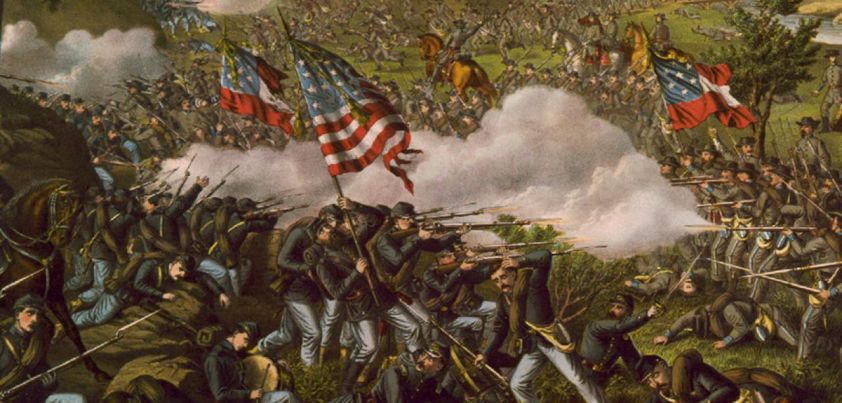 This American Civil War story by Ambrose Bierce develops an increasingly ominous tone after a six-year-old boy becomes lost in the woods while playing soldier. He mysteriously sleeps through a bloody battle, wakes to find himself confronted by hundreds of badly wounded and dying soldiers, and silently “leads” them towards a red glow, which turns out to be his burning home. As he stands making “animal noises” over the gory remains of his dead mother, we learn the reason for some of his unusual behavior. Themes: the fantasy (glory) vs. reality (horror) of war, perception (childhood innocence vs. adult awareness). More…
This American Civil War story by Ambrose Bierce develops an increasingly ominous tone after a six-year-old boy becomes lost in the woods while playing soldier. He mysteriously sleeps through a bloody battle, wakes to find himself confronted by hundreds of badly wounded and dying soldiers, and silently “leads” them towards a red glow, which turns out to be his burning home. As he stands making “animal noises” over the gory remains of his dead mother, we learn the reason for some of his unusual behavior. Themes: the fantasy (glory) vs. reality (horror) of war, perception (childhood innocence vs. adult awareness). More…
The Stone Boy
 The twin focuses of this disturbing story by Gina Berriault are a farm boy’s unusual reaction to his accidental shooting of his older brother, and his family and community’s interpretation of that reaction. Rather than run home in tears, the boy continues with their assigned task (picking peas), and calmly reports the death when this is completed. When the boy appears emotionless during the sheriff’s questioning, he is branded a psychopath and cruelly ostracized by family and friends. This becomes self-fulfilling, as the once normal nine-year-old transforms into a “stone boy”. Themes: loss, fear/guilt, grief, parental failure, alienation, isolation, identity. More…
The twin focuses of this disturbing story by Gina Berriault are a farm boy’s unusual reaction to his accidental shooting of his older brother, and his family and community’s interpretation of that reaction. Rather than run home in tears, the boy continues with their assigned task (picking peas), and calmly reports the death when this is completed. When the boy appears emotionless during the sheriff’s questioning, he is branded a psychopath and cruelly ostracized by family and friends. This becomes self-fulfilling, as the once normal nine-year-old transforms into a “stone boy”. Themes: loss, fear/guilt, grief, parental failure, alienation, isolation, identity. More…
Speech Sounds
 This story from Octavia Butler takes place in a violent, post-apocalyptic world. A virus has killed billions and left most survivors unable to speak, read, write or understand spoken language. Governments and the corporate world have collapsed, there are no police or community services, fuel is scarce. People must fend for themselves. The protagonist, whose husband and children fell to the virus, is contemplating suicide. The desperate woman finds and cruelly loses a new lover, but in the process discovers a renewed purpose in life. Themes: the importance of language, isolation, loneliness, fear, violence, hope. More…
This story from Octavia Butler takes place in a violent, post-apocalyptic world. A virus has killed billions and left most survivors unable to speak, read, write or understand spoken language. Governments and the corporate world have collapsed, there are no police or community services, fuel is scarce. People must fend for themselves. The protagonist, whose husband and children fell to the virus, is contemplating suicide. The desperate woman finds and cruelly loses a new lover, but in the process discovers a renewed purpose in life. Themes: the importance of language, isolation, loneliness, fear, violence, hope. More…
The Gilded Six-Bits
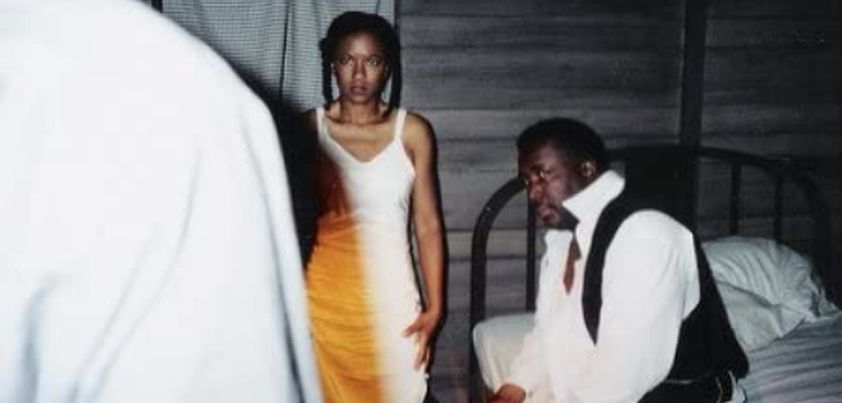 The popular interpretation of this story by Zora Neale Hurston is that two young newlyweds (Joe and Missie May) have what appears to be a perfect marriage until a boastful newcomer from Chicago (Otis) opens an ice-cream parlor in their small Southern town. The couple’s playful, passionate bliss is shattered when Otis, who appears wealthy and sophisticated, seduces Missie May in exchange for promises of gold. In most short stories, this would lead to a tragic ending. Not here! The couple come out of it seemingly happier than ever. Themes: poverty, love, deception (appearances vs. reality), temptation, betrayal, guilt, forgiveness. More…
The popular interpretation of this story by Zora Neale Hurston is that two young newlyweds (Joe and Missie May) have what appears to be a perfect marriage until a boastful newcomer from Chicago (Otis) opens an ice-cream parlor in their small Southern town. The couple’s playful, passionate bliss is shattered when Otis, who appears wealthy and sophisticated, seduces Missie May in exchange for promises of gold. In most short stories, this would lead to a tragic ending. Not here! The couple come out of it seemingly happier than ever. Themes: poverty, love, deception (appearances vs. reality), temptation, betrayal, guilt, forgiveness. More…
The Wedding Dance
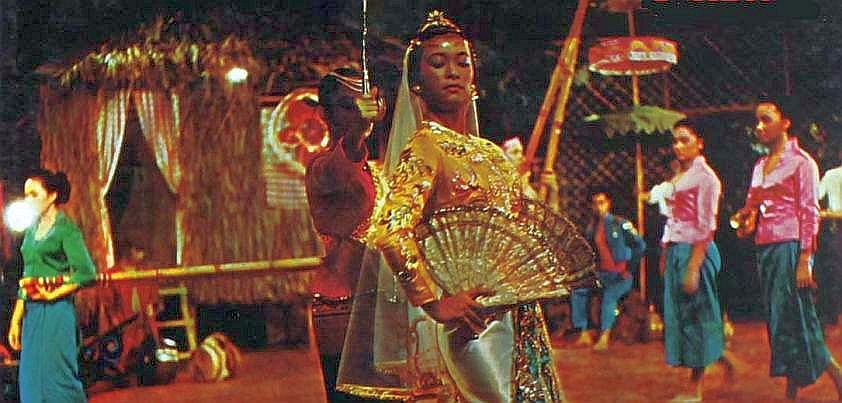 The major themes of this touching story by Amador Daguio are tradition, love and courage. Set in pre-colonial Philippines, a villager follows custom and remarries when his wife fails to conceive. Despite their pledges of love, neither challenges this unwritten law. Whether the theme of “courage” has positive or negative connotations for the protagonist depends on the reader’s interpretation as to why she walks away from her husband’s second wedding dance. Is this because she lacks the courage to confront the tribal elders, or because she finds the courage to “let go” and sacrifice her happiness for her husband’s honor? More…
The major themes of this touching story by Amador Daguio are tradition, love and courage. Set in pre-colonial Philippines, a villager follows custom and remarries when his wife fails to conceive. Despite their pledges of love, neither challenges this unwritten law. Whether the theme of “courage” has positive or negative connotations for the protagonist depends on the reader’s interpretation as to why she walks away from her husband’s second wedding dance. Is this because she lacks the courage to confront the tribal elders, or because she finds the courage to “let go” and sacrifice her happiness for her husband’s honor? More…
The Centaur
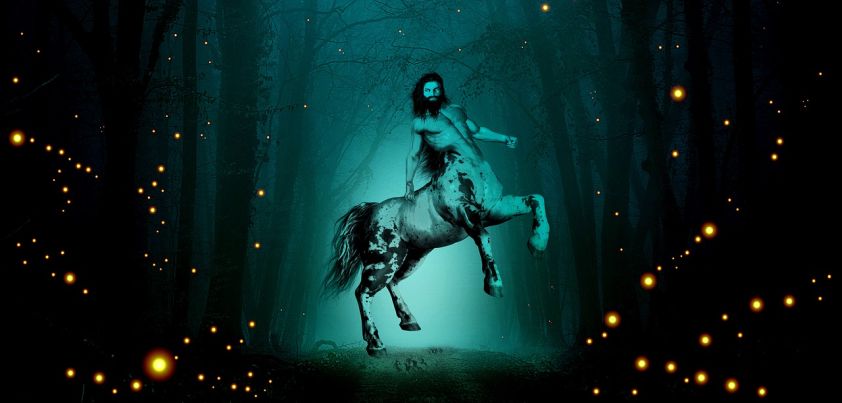 A major theme of this story by José Saramago is fear of those who are fundamentally “different”. Other themes include duality, modernity, wilderness encroachment, loneliness, isolation and identity. A mythical Centaur survives into the 20th century. The only one of its kind still living, it has wandered the wilderness for thousands of years. Unfortunately, humanity is expanding and it has become increasingly difficult to avoid contact. A fascinating feature of the story is the interdependence between the centaur’s horse and human sides. Both have different needs, which often require compromise. There are some human needs, however, that can’t be met. More…
A major theme of this story by José Saramago is fear of those who are fundamentally “different”. Other themes include duality, modernity, wilderness encroachment, loneliness, isolation and identity. A mythical Centaur survives into the 20th century. The only one of its kind still living, it has wandered the wilderness for thousands of years. Unfortunately, humanity is expanding and it has become increasingly difficult to avoid contact. A fascinating feature of the story is the interdependence between the centaur’s horse and human sides. Both have different needs, which often require compromise. There are some human needs, however, that can’t be met. More…
Big Brother, Little Sister
 Sadly, elements of this story by Witi Ihimaera play out every day in cities across the world. Major themes include domestic violence, fear, isolation, desperation and sibling love. When a young boy flees home to escape his insecure mother’s abusive boyfriend, his seven-year-old sister follows. Within a few hours, they encounter several of the dangers that being alone on the streets at night have to offer. The city is portrayed as an endless stream of lost souls, each struggling to survive or reach an unknown destination. The two children join them. Other themes: drug and alcohol abuse, dependency, irresponsibility, hope. More…
Sadly, elements of this story by Witi Ihimaera play out every day in cities across the world. Major themes include domestic violence, fear, isolation, desperation and sibling love. When a young boy flees home to escape his insecure mother’s abusive boyfriend, his seven-year-old sister follows. Within a few hours, they encounter several of the dangers that being alone on the streets at night have to offer. The city is portrayed as an endless stream of lost souls, each struggling to survive or reach an unknown destination. The two children join them. Other themes: drug and alcohol abuse, dependency, irresponsibility, hope. More…
Amnesty
 A major theme of this story by Nadine Gordimer, and the reason it is still relevant today, is the need for grass roots involvement in the struggle for justice. A young South African woman whose unionist husband is imprisoned for five years comes to appreciate the need for people at all levels to join hands in resisting oppression. Although the exploitation of poorly educated indigenous laborers depicted in the story has greatly diminished, injustice in many other forms is still rampant throughout the world. Other themes: racism, the right to protest, the importance of learning, love, loneliness, dedication, change. More…
A major theme of this story by Nadine Gordimer, and the reason it is still relevant today, is the need for grass roots involvement in the struggle for justice. A young South African woman whose unionist husband is imprisoned for five years comes to appreciate the need for people at all levels to join hands in resisting oppression. Although the exploitation of poorly educated indigenous laborers depicted in the story has greatly diminished, injustice in many other forms is still rampant throughout the world. Other themes: racism, the right to protest, the importance of learning, love, loneliness, dedication, change. More…
The Way It Felt to Be Falling
 The major theme of this story by Kim Edwards is fear. For the nineteen-year-old-protagonist working to save money for college, the principal fear is losing her mind like her father. Her life revolves around work, helping her overwrought mother with her home cake-decorating business, and hanging out with her mentally unstable boyfriend. When the boyfriend talks her into going skydiving, she faces an even greater fear: death. Her exhilaration over confronting this fear and making the jump help displace her other fears and turn her life around. Other themes include responsibility, loneliness, mental illness, substance abuse, shame, freedom. More…
The major theme of this story by Kim Edwards is fear. For the nineteen-year-old-protagonist working to save money for college, the principal fear is losing her mind like her father. Her life revolves around work, helping her overwrought mother with her home cake-decorating business, and hanging out with her mentally unstable boyfriend. When the boyfriend talks her into going skydiving, she faces an even greater fear: death. Her exhilaration over confronting this fear and making the jump help displace her other fears and turn her life around. Other themes include responsibility, loneliness, mental illness, substance abuse, shame, freedom. More…
The Sheriff’s Children
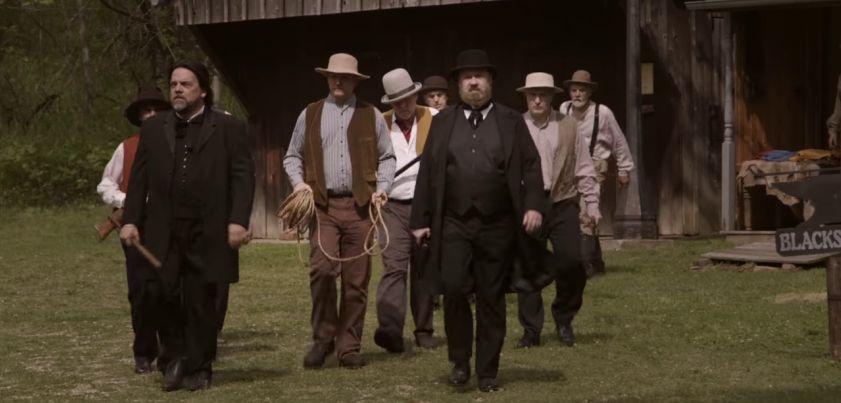 In this story by Charles W. Chesnutt, a highly respected sheriff with a strong sense of duty protects an alleged murderer from a vigilante mob. He later learns that the prisoner, a mixed race former slave, is his son by a slave woman he had once owned. Believing his son to be innocent, the sheriff faces a dilemma. Should he do his duty (keep him safe until his trial and almost certain hanging) or take responsibility for his welfare (let him ‘escape’)? Themes: race and racism, frontier justice, slavery, identity, regret, duty vs. responsibility. More…
In this story by Charles W. Chesnutt, a highly respected sheriff with a strong sense of duty protects an alleged murderer from a vigilante mob. He later learns that the prisoner, a mixed race former slave, is his son by a slave woman he had once owned. Believing his son to be innocent, the sheriff faces a dilemma. Should he do his duty (keep him safe until his trial and almost certain hanging) or take responsibility for his welfare (let him ‘escape’)? Themes: race and racism, frontier justice, slavery, identity, regret, duty vs. responsibility. More…
A Shocking Accident
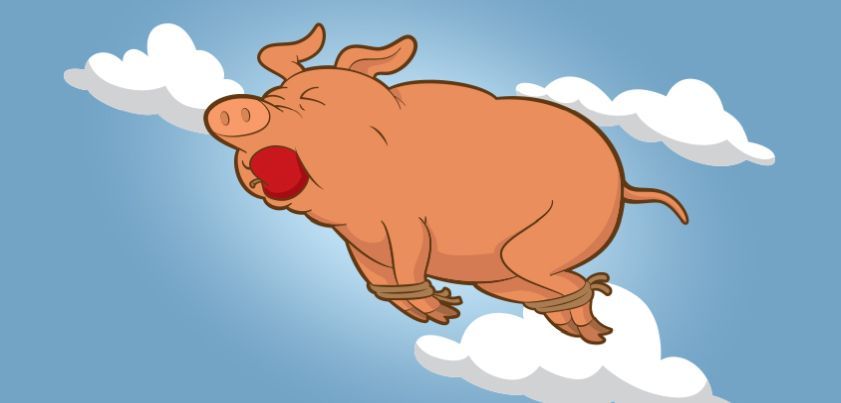 Graham Greene’s short stories span many genres, from the serious to the farcical. In this comedy, a boy rationalizes his widowed father’s long absences from home by convincing himself that he is a mysterious adventurer. In reality, his father is a restless author whose unlikely death in an Italian “street accident” becomes an embarrassment the lad must carry into adulthood. Things change when he falls in love with a woman who shares a similar concern for the fate of animals. Themes: father-son relationships, perception, the unpredictability of life/death, communicating bad news, fear of ridicule. More…
Graham Greene’s short stories span many genres, from the serious to the farcical. In this comedy, a boy rationalizes his widowed father’s long absences from home by convincing himself that he is a mysterious adventurer. In reality, his father is a restless author whose unlikely death in an Italian “street accident” becomes an embarrassment the lad must carry into adulthood. Things change when he falls in love with a woman who shares a similar concern for the fate of animals. Themes: father-son relationships, perception, the unpredictability of life/death, communicating bad news, fear of ridicule. More…
Land Deal
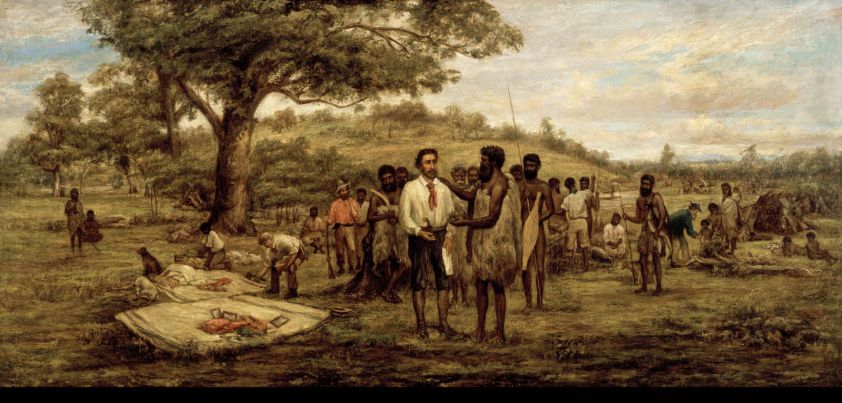 Australians recently voted (No) on a proposal to change their Constitution to recognize its First Peoples by establishing an advisory body called the Aboriginal and Torres Strait Islander Voice. In recognition of this, it seems appropriate to feature this acclaimed story by Gerald Murnane. It provides a surreal interpretation of an early (afterwards deemed void) “treaty” between men from overseas and representatives of the Wurundjeri people of the Kulin Aboriginal Nation. The Wurundjeri narrator rationalizes the events as a dream (or perhaps nightmare) within a dream that must one day end. Themes: manipulation, exploitation, indivisibility of the land, restoration. More…
Australians recently voted (No) on a proposal to change their Constitution to recognize its First Peoples by establishing an advisory body called the Aboriginal and Torres Strait Islander Voice. In recognition of this, it seems appropriate to feature this acclaimed story by Gerald Murnane. It provides a surreal interpretation of an early (afterwards deemed void) “treaty” between men from overseas and representatives of the Wurundjeri people of the Kulin Aboriginal Nation. The Wurundjeri narrator rationalizes the events as a dream (or perhaps nightmare) within a dream that must one day end. Themes: manipulation, exploitation, indivisibility of the land, restoration. More…
The Postmaster / Stationmaster
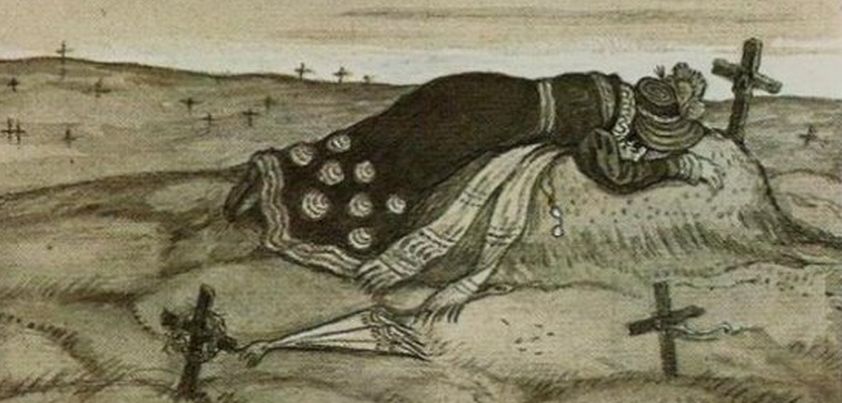 Set in early 19th century Russia, a fascinating aspect of his acclaimed story from Alexander Pushkin is its ambiguity. A beautiful, flirtatious girl leaves her impoverished village in the company of a passing army officer. When her distraught father tracks the officer to a distant city and finds them together, he concludes she is a “kept woman”. He returns home in disgust, turns to alcohol, and dies a lonely death. Years later a beautiful, obviously very rich woman weeps on his grave. Themes include class conflicts, poverty, moral corruption vs. romantic love, government bureaucracy, religion, misjudgement, loss, grief. More…
Set in early 19th century Russia, a fascinating aspect of his acclaimed story from Alexander Pushkin is its ambiguity. A beautiful, flirtatious girl leaves her impoverished village in the company of a passing army officer. When her distraught father tracks the officer to a distant city and finds them together, he concludes she is a “kept woman”. He returns home in disgust, turns to alcohol, and dies a lonely death. Years later a beautiful, obviously very rich woman weeps on his grave. Themes include class conflicts, poverty, moral corruption vs. romantic love, government bureaucracy, religion, misjudgement, loss, grief. More…
April in Paris
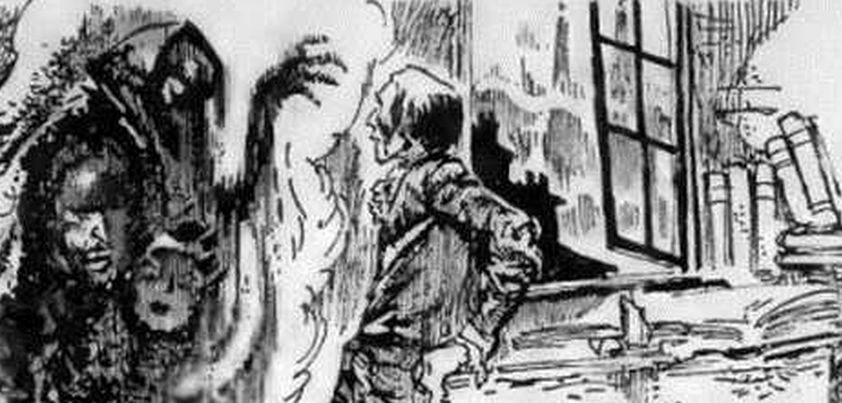 The central theme of this Ursula Le Guin story is the alienation and loneliness brought about by obsession with work and lack of companionship. A 15th century French scientist, frustrated with being unable to prove a theory he had developed, decides his work is a waste of time. He experiments with black magic and is surprised when his first spell is a success, allowing him to teleport kindred spirits from the past and future to join him. Those who come are so happy in his reality that they have no desire to return. Other themes: the occult, connection. More…
The central theme of this Ursula Le Guin story is the alienation and loneliness brought about by obsession with work and lack of companionship. A 15th century French scientist, frustrated with being unable to prove a theory he had developed, decides his work is a waste of time. He experiments with black magic and is surprised when his first spell is a success, allowing him to teleport kindred spirits from the past and future to join him. Those who come are so happy in his reality that they have no desire to return. Other themes: the occult, connection. More…
Fleur
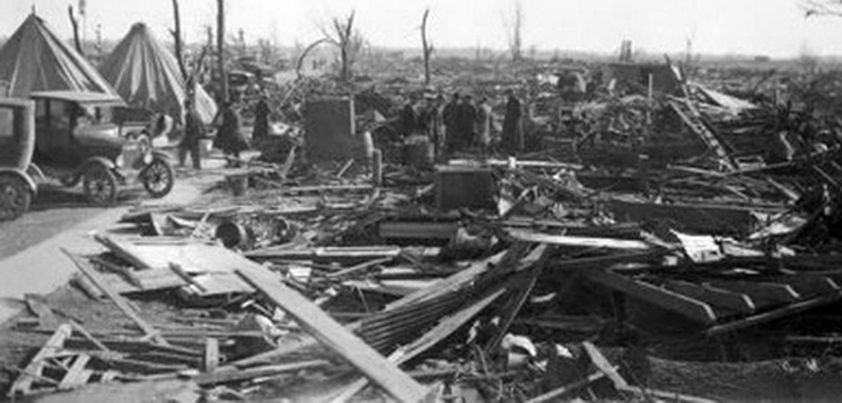 This story by Louise Edrich incorporates elements of magical realism and Chippewa Indian mythology. It recounts the experiences of Fleur, a Native-American woman who leaves her tribe after several mystical experiences to work in a small-town butchery. Fleur is not only strong, independent and confident, but has seemingly magical powers that, among other things, help her consistently win money from her male co-workers in after-work card games. This damages the men’s egos, leading to her brutal rape and the “accidental” death of her three abusers. Themes: female power, sexuality and mystique; racism; gender and cultural conflicts; violence. More…
This story by Louise Edrich incorporates elements of magical realism and Chippewa Indian mythology. It recounts the experiences of Fleur, a Native-American woman who leaves her tribe after several mystical experiences to work in a small-town butchery. Fleur is not only strong, independent and confident, but has seemingly magical powers that, among other things, help her consistently win money from her male co-workers in after-work card games. This damages the men’s egos, leading to her brutal rape and the “accidental” death of her three abusers. Themes: female power, sexuality and mystique; racism; gender and cultural conflicts; violence. More…
The Fat Girl
 This story from Andre Dubus highlights the psychological damage that can arise when young people are shamed for not fitting community or cultural norms. A mother’s efforts to control her daughter’s diet results in a serious eating disorder. Later, a weight-loss program initiated by a well-meaning college roommate leads to a confused self-image, an unfulfilling, shallow marriage and, when she becomes pregnant, recurrence of the eating disorder. Fortunately, the birth of a son brings about an epiphany through which she is finally able to be comfortable with who she is. Themes: conformity, identity, food and dieting, body shaming, friendship, transformation. More…
This story from Andre Dubus highlights the psychological damage that can arise when young people are shamed for not fitting community or cultural norms. A mother’s efforts to control her daughter’s diet results in a serious eating disorder. Later, a weight-loss program initiated by a well-meaning college roommate leads to a confused self-image, an unfulfilling, shallow marriage and, when she becomes pregnant, recurrence of the eating disorder. Fortunately, the birth of a son brings about an epiphany through which she is finally able to be comfortable with who she is. Themes: conformity, identity, food and dieting, body shaming, friendship, transformation. More…
On the Rainy River
 The major themes of this “memoir” by Tim O’Brien are shame and guilt. Its purpose is to mitigate the trauma of events twenty years earlier when, as a twenty-one-year-old, the writer was drafted to fight in Vietnam. Ironically, he feels both emotions: 1) for his initial decision to flee America to avoid fighting in a war he didn’t believe in; and 2) for putting his convictions aside, going to war, and things he did and/or was exposed to during the conflict. Other themes: moral confusion, civic duty, fear (embarrassment/social stigma vs. injury or death), connection, courage and cowardice. More…
The major themes of this “memoir” by Tim O’Brien are shame and guilt. Its purpose is to mitigate the trauma of events twenty years earlier when, as a twenty-one-year-old, the writer was drafted to fight in Vietnam. Ironically, he feels both emotions: 1) for his initial decision to flee America to avoid fighting in a war he didn’t believe in; and 2) for putting his convictions aside, going to war, and things he did and/or was exposed to during the conflict. Other themes: moral confusion, civic duty, fear (embarrassment/social stigma vs. injury or death), connection, courage and cowardice. More…
The Money-Box
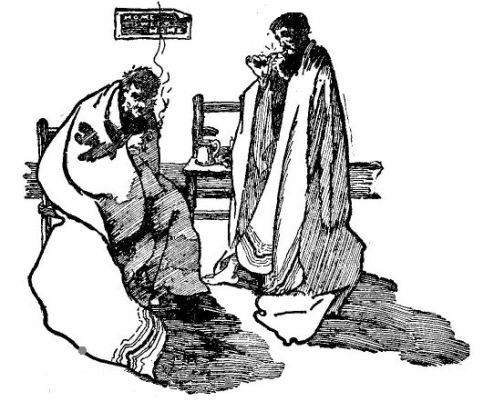 Modern readers tend to associate W. W. Jacobs with tales of the macabre, such as his famous The Monkey’s Paw. What few realize is that most of his stories were humorous. His favorite subjects were ships and those who sail in them, and how tricksters take advantage of slow-witted villagers. In this story, two sailors tired of squandering their wages in the first few days ashore trust their pay to a very steady old teetotaler who agrees to give them a moderate amount each day. Needless to say, they soon regret the decision. Themes: money, irresponsibility, temperance, duty. More…
Modern readers tend to associate W. W. Jacobs with tales of the macabre, such as his famous The Monkey’s Paw. What few realize is that most of his stories were humorous. His favorite subjects were ships and those who sail in them, and how tricksters take advantage of slow-witted villagers. In this story, two sailors tired of squandering their wages in the first few days ashore trust their pay to a very steady old teetotaler who agrees to give them a moderate amount each day. Needless to say, they soon regret the decision. Themes: money, irresponsibility, temperance, duty. More…
A Point at Issue!
 This early Kate Chopin story explores the relationship between unconventional 1880s newly-weds. A progressive mathematics professor marries his ideal woman: independent, intuitive, intellectual and extremely good to look at. After a European honeymoon, they decide to live separate lives for one or two years. She stays in Paris to become fluent in French, while he returns to teaching in America. The relationship is tested when he writes about the interesting emotions a friend’s young daughter stirs in him, and she is caught with an embarrassed young man in her studio. Themes: independence and equality, trust vs. suspicion, jealousy, repression. More…
This early Kate Chopin story explores the relationship between unconventional 1880s newly-weds. A progressive mathematics professor marries his ideal woman: independent, intuitive, intellectual and extremely good to look at. After a European honeymoon, they decide to live separate lives for one or two years. She stays in Paris to become fluent in French, while he returns to teaching in America. The relationship is tested when he writes about the interesting emotions a friend’s young daughter stirs in him, and she is caught with an embarrassed young man in her studio. Themes: independence and equality, trust vs. suspicion, jealousy, repression. More…
The Aleph
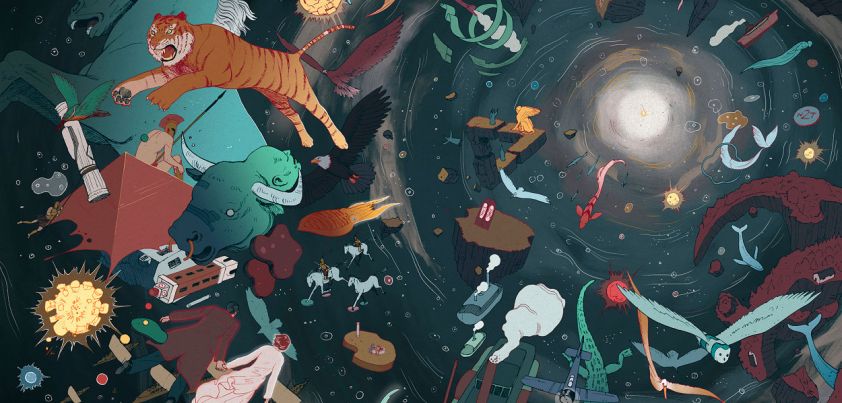 In a commentary on this story, Jorge Borges explained: “What eternity is to time, the Aleph is to space”. In the story, a fictionalized version of Borges maintains contact with the family of a deceased woman he once loved. He learns that her cousin, an “untalented” poet, is using an Aleph, a point in space that contains all other points, to write an epic poem versifying every place on Earth. Major Themes: the fleeting nature of memory, the limitations of language in describing infinity. Other themes: unrequited love, death, grief, the subjective nature of art. More…
In a commentary on this story, Jorge Borges explained: “What eternity is to time, the Aleph is to space”. In the story, a fictionalized version of Borges maintains contact with the family of a deceased woman he once loved. He learns that her cousin, an “untalented” poet, is using an Aleph, a point in space that contains all other points, to write an epic poem versifying every place on Earth. Major Themes: the fleeting nature of memory, the limitations of language in describing infinity. Other themes: unrequited love, death, grief, the subjective nature of art. More…
Tennessee’s Partner
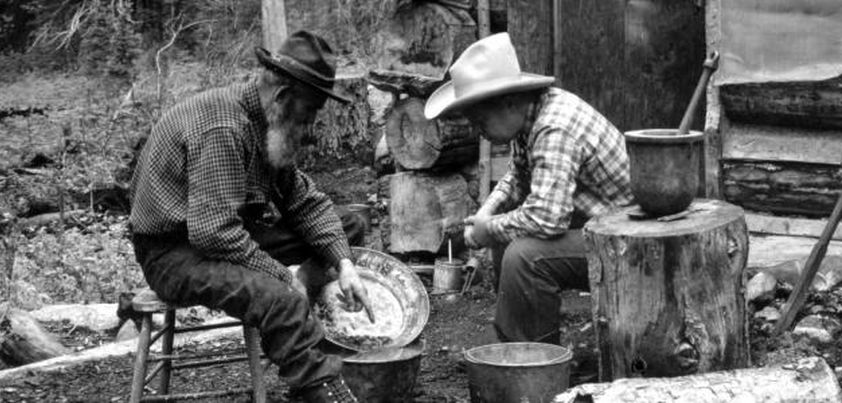 Bret Harte’s Tennessee’s Partner is said to be one of America’s first ‘bromance’ stories. Set in an isolated mining town during the California Gold Rush, two men sharing a cabin have a friendship so strong that it survives when one of them (Tennessee) runs away with his partner’s new bride and returns after she leaves him for someone else. Unfortunately, the townspeople become tired of Tennessee’s mischief and begin to suspect him of theft. A purported armed robbery, frontier justice and a hanging separate the two friends. But not for long! Themes: friendship, loyalty, crime and punishment, justice. More…
Bret Harte’s Tennessee’s Partner is said to be one of America’s first ‘bromance’ stories. Set in an isolated mining town during the California Gold Rush, two men sharing a cabin have a friendship so strong that it survives when one of them (Tennessee) runs away with his partner’s new bride and returns after she leaves him for someone else. Unfortunately, the townspeople become tired of Tennessee’s mischief and begin to suspect him of theft. A purported armed robbery, frontier justice and a hanging separate the two friends. But not for long! Themes: friendship, loyalty, crime and punishment, justice. More…
The Lumber Room
 This humorous story from H. H. Munro (aka Saki) describes a clever but mischievous boy’s efforts to explore the wonders of his house’s off-limits-to-children lumber-room. [Not to be confused with planks of wood, the word “lumber” here is a British term for miscellaneous stored articles.] In disgrace for putting a frog in his breakfast bowl, the boy has come up with an elaborate plan to distract his oppressive aunt while in the forbidden room. His day gets even better when the suspicious woman falls into a rain-water tank. Themes: mischief, curiosity, imagination, oppression, defiance. More…
This humorous story from H. H. Munro (aka Saki) describes a clever but mischievous boy’s efforts to explore the wonders of his house’s off-limits-to-children lumber-room. [Not to be confused with planks of wood, the word “lumber” here is a British term for miscellaneous stored articles.] In disgrace for putting a frog in his breakfast bowl, the boy has come up with an elaborate plan to distract his oppressive aunt while in the forbidden room. His day gets even better when the suspicious woman falls into a rain-water tank. Themes: mischief, curiosity, imagination, oppression, defiance. More…
Usher II
 First published in 1950 as Carnival of Madness, this story by Ray Bradbury is also included in his anthologies The Martian Chronicles and The Illustrated Man. A wealthy book-lover, angry about destruction of his extensive library because of fantasy and horror story censorship on Earth, builds a look-alike version of Edgar Allan Poe’s House of Usher on Mars. He invites prominent book-banners to a party at the house, where they meet different Poe-inspired ends. Themes: censorship vs. personal freedom, the importance of speculative fiction, the danger of excess political correctness, zealotry (in this case, taking a protest too far!) More…
First published in 1950 as Carnival of Madness, this story by Ray Bradbury is also included in his anthologies The Martian Chronicles and The Illustrated Man. A wealthy book-lover, angry about destruction of his extensive library because of fantasy and horror story censorship on Earth, builds a look-alike version of Edgar Allan Poe’s House of Usher on Mars. He invites prominent book-banners to a party at the house, where they meet different Poe-inspired ends. Themes: censorship vs. personal freedom, the importance of speculative fiction, the danger of excess political correctness, zealotry (in this case, taking a protest too far!) More…
A Cup of Tea
 Although written in a lighthearted tone, this innocently titled story from Katherine Mansfield deals with some big issues. Its major theme is the materialism, hypocrisy and vanity of the British upper class. The desire for a “cup of tea” symbolizes the one similarity (womanhood) between a young beggar and middle-aged socialite. One is poor, desperate and astonishingly pretty; the other rich, entitled and not exactly beautiful. The socialite’s reason for wanting to help the girl was to show how compassionate she is. However, she soon realizes this may highlight a less favorable difference between them. Other themes: appearance, jealousy, insecurity. More…
Although written in a lighthearted tone, this innocently titled story from Katherine Mansfield deals with some big issues. Its major theme is the materialism, hypocrisy and vanity of the British upper class. The desire for a “cup of tea” symbolizes the one similarity (womanhood) between a young beggar and middle-aged socialite. One is poor, desperate and astonishingly pretty; the other rich, entitled and not exactly beautiful. The socialite’s reason for wanting to help the girl was to show how compassionate she is. However, she soon realizes this may highlight a less favorable difference between them. Other themes: appearance, jealousy, insecurity. More…
Lullaby
 Although this story by Leslie Marmon Silko takes place over a single evening, some of the events described span three generations. An aging Native American woman searching for her alcoholic husband reminisces about her life. Although her childhood memories are pleasant, her adult memories are full of loss and tragedy. Her husband has been exploited by a “white rancher” and, having lost at least three children to natural causes and one to war, her last two were removed by “white doctors”. Themes: memories, tradition and change, language barriers, racism, oppression and exploitation, motherhood, death and loss. More…
Although this story by Leslie Marmon Silko takes place over a single evening, some of the events described span three generations. An aging Native American woman searching for her alcoholic husband reminisces about her life. Although her childhood memories are pleasant, her adult memories are full of loss and tragedy. Her husband has been exploited by a “white rancher” and, having lost at least three children to natural causes and one to war, her last two were removed by “white doctors”. Themes: memories, tradition and change, language barriers, racism, oppression and exploitation, motherhood, death and loss. More…
The Chrysanthemums
 In this seemingly straightforward story by John Steinbeck, chrysanthemum-growing Elisa’s character can be interpreted in several, often contradictory, ways. Is she “strong and happy” as her husband says, or weak and disillusioned with her life? Does she crave companionship, intimacy and perhaps a child, or freedom? Is her fascination with chrysanthemums because of a special connection with nature, or because they represent the only joy in her life? Whatever the answers, after a smooth-talking tinker raises her self-esteem and then shatters it, Elisa’s tears signify her realization that nothing will change. Themes: isolation, loneliness, aesthetics, lack of fulfillment, betrayal. More…
In this seemingly straightforward story by John Steinbeck, chrysanthemum-growing Elisa’s character can be interpreted in several, often contradictory, ways. Is she “strong and happy” as her husband says, or weak and disillusioned with her life? Does she crave companionship, intimacy and perhaps a child, or freedom? Is her fascination with chrysanthemums because of a special connection with nature, or because they represent the only joy in her life? Whatever the answers, after a smooth-talking tinker raises her self-esteem and then shatters it, Elisa’s tears signify her realization that nothing will change. Themes: isolation, loneliness, aesthetics, lack of fulfillment, betrayal. More…
Diary of a Madman
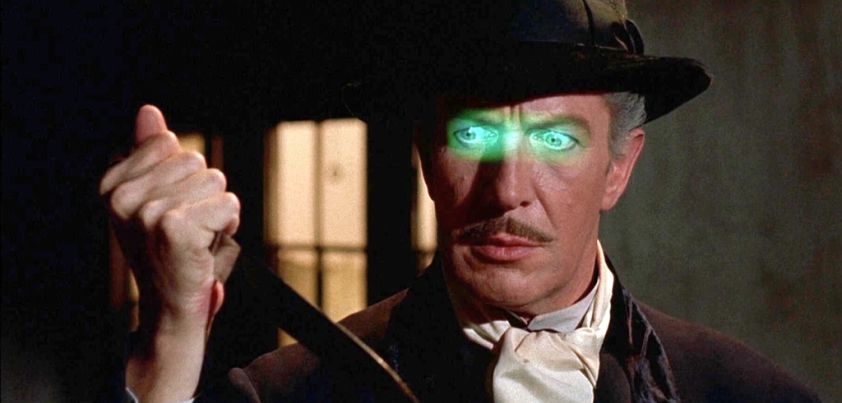 Although not one of Guy de Maupassant’s best known works, this is still a fascinating read. The madman (and in this case thrill killer) is a highly respected magistrate who sentences an innocent man to death for one of his own gruesome murders. Later, he gets an additional thrill from witnessing the poor man’s execution. The motif here is that even seemingly incorruptible members of society can descend into madness and commit the most heinous of crimes. Themes: madness, false impressions, society’s fascination with killing (especially as part of war), the undiscovered madmen among us. More…
Although not one of Guy de Maupassant’s best known works, this is still a fascinating read. The madman (and in this case thrill killer) is a highly respected magistrate who sentences an innocent man to death for one of his own gruesome murders. Later, he gets an additional thrill from witnessing the poor man’s execution. The motif here is that even seemingly incorruptible members of society can descend into madness and commit the most heinous of crimes. Themes: madness, false impressions, society’s fascination with killing (especially as part of war), the undiscovered madmen among us. More…
The Barber’s Trade Union
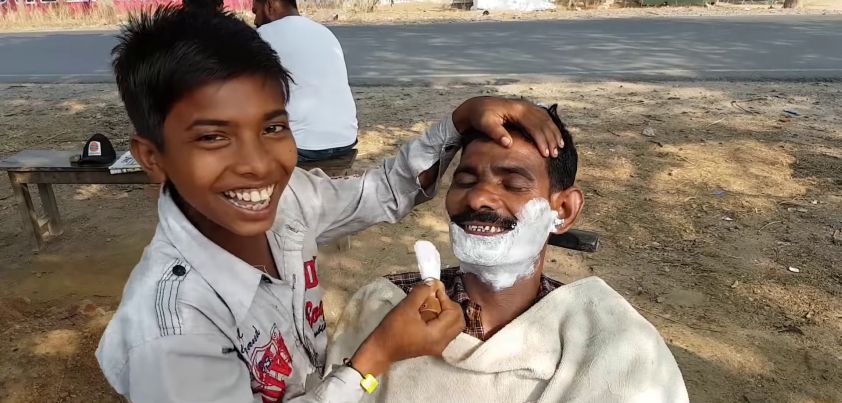 The major theme of this inspirational story by Mulk Raj Anand is class as reflected in the Indian caste system. When a young barber tries to improve his appearance by dressing more professionally, he is verbally abused and humiliated by village elders for acting above his “lowly” position in life. Rather than becoming disillusioned and giving in to their ingrained bigotry, he changes the way he works, makes more money than ever before, and ingeniously turns the tables on his detractors. Other themes: human dignity, alienation, appearance, determination, ingenuity, organized labor. More…
The major theme of this inspirational story by Mulk Raj Anand is class as reflected in the Indian caste system. When a young barber tries to improve his appearance by dressing more professionally, he is verbally abused and humiliated by village elders for acting above his “lowly” position in life. Rather than becoming disillusioned and giving in to their ingrained bigotry, he changes the way he works, makes more money than ever before, and ingeniously turns the tables on his detractors. Other themes: human dignity, alienation, appearance, determination, ingenuity, organized labor. More…
Roman Fever
 The major themes of this Edith Wharton story are friendship, rivalry, jealousy, deception and passion. A notable feature is the gradual build-up of animosity between the main characters. Two American widows, lifelong friends, meet up in Rome. The pair have been measuring themselves against each other for most of their lives. The comparisons extend to their daughters, one of whom is more outgoing and vivacious than the other. In an effort to hurt the mother of this girl, the other reveals a cruel secret from the past. In the shattering conclusion, an even crueler secret is thrown back at her. More…
The major themes of this Edith Wharton story are friendship, rivalry, jealousy, deception and passion. A notable feature is the gradual build-up of animosity between the main characters. Two American widows, lifelong friends, meet up in Rome. The pair have been measuring themselves against each other for most of their lives. The comparisons extend to their daughters, one of whom is more outgoing and vivacious than the other. In an effort to hurt the mother of this girl, the other reveals a cruel secret from the past. In the shattering conclusion, an even crueler secret is thrown back at her. More…
The Middleman
 The most succinct summary of this Bharati Mukherjee story I’ve seen came from a Goodreads review: An Iraqi Jew unwittingly aids a Central American revolution. There is obviously a lot more to it, including lust, arms smuggling, treachery and murder. Moreover, rather than being a revolutionary hero, the protagonist is an unscrupulous American criminal on the run from the law. Although he calls himself a “middleman”, we don’t see him act as such. Being new to the country, he is hoping to make a living from things that fall. And something certainly does! Themes: lust, corruption, exploitation, betrayal, violence. More…
The most succinct summary of this Bharati Mukherjee story I’ve seen came from a Goodreads review: An Iraqi Jew unwittingly aids a Central American revolution. There is obviously a lot more to it, including lust, arms smuggling, treachery and murder. Moreover, rather than being a revolutionary hero, the protagonist is an unscrupulous American criminal on the run from the law. Although he calls himself a “middleman”, we don’t see him act as such. Being new to the country, he is hoping to make a living from things that fall. And something certainly does! Themes: lust, corruption, exploitation, betrayal, violence. More…
The Darling
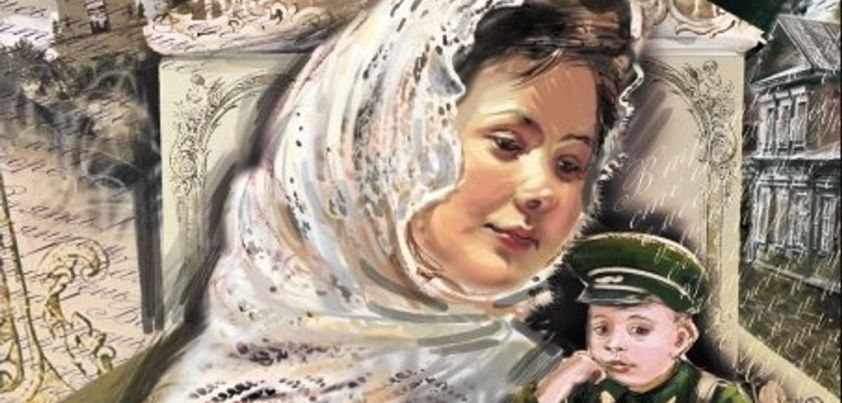 In psychological terms, Anton Chekhov’s ‘darling’ (Olga) suffers from Codependency Personality Disorder. More specifically, she is a vicarious codependent – someone who suspends their identity and gains fulfillment through the accomplishments of another. Olga’s ‘attachments’ in life include her father, a theatre manager, a timber merchant, a veterinary surgeon, and a young boy. Her relationship with the boy differs from the others. Being forced to assume a ‘motherly’ role rekindles Olga’s female identity. Sadly, motherhood and codependency don’t sit well together. In rediscovering her own identity, Olga begins to smother that of the boy. Themes: codependency, subservience, death, abandonment, identity, motherhood. More…
In psychological terms, Anton Chekhov’s ‘darling’ (Olga) suffers from Codependency Personality Disorder. More specifically, she is a vicarious codependent – someone who suspends their identity and gains fulfillment through the accomplishments of another. Olga’s ‘attachments’ in life include her father, a theatre manager, a timber merchant, a veterinary surgeon, and a young boy. Her relationship with the boy differs from the others. Being forced to assume a ‘motherly’ role rekindles Olga’s female identity. Sadly, motherhood and codependency don’t sit well together. In rediscovering her own identity, Olga begins to smother that of the boy. Themes: codependency, subservience, death, abandonment, identity, motherhood. More…
In the Garden of the North American Martyrs
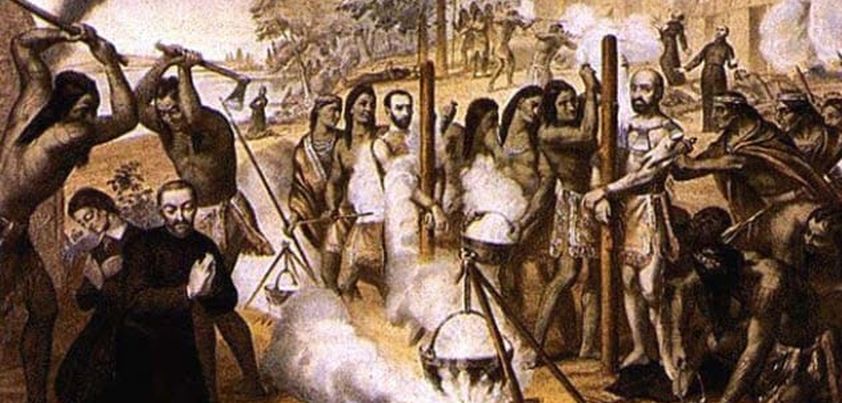 This early Tobias Wolff story is about a college history professor who has always played it safe by expounding non-controversial views. When her East Coast school of fifteen years closes, she finds tenure in Oregon. However, the climate is not to her liking. After gaining an interview for a position in a prestigious college in upstate New York, she learns that she is a token female candidate with no chance of success. Part of the application process is a lecture, where she finds her own voice for the first time. Themes: identity, betrayal, manipulation, academic integrity, conformity vs. original thought. More…
This early Tobias Wolff story is about a college history professor who has always played it safe by expounding non-controversial views. When her East Coast school of fifteen years closes, she finds tenure in Oregon. However, the climate is not to her liking. After gaining an interview for a position in a prestigious college in upstate New York, she learns that she is a token female candidate with no chance of success. Part of the application process is a lecture, where she finds her own voice for the first time. Themes: identity, betrayal, manipulation, academic integrity, conformity vs. original thought. More…
Folie à Deux
 In William Trevor’s Folie à Deux (foolishness shared by two), the protagonist’s chance meeting with a childhood friend brings back memories of a joint act of animal cruelty on an Irish beach. The protagonist has moved on; his friend Anthony has not. Anthony’s way of dealing with his guilt was to withdraw into himself. Over thirty years later, having “disappeared” and been presumed dead, he lives a solitary, reclusive life in Paris, still unable to shake off self-reproach for his part in their actions. Themes: friendship, shared secrets, childhood cruelty, guilt, alienation, rumination (obsessive reliving of traumatic events). More…
In William Trevor’s Folie à Deux (foolishness shared by two), the protagonist’s chance meeting with a childhood friend brings back memories of a joint act of animal cruelty on an Irish beach. The protagonist has moved on; his friend Anthony has not. Anthony’s way of dealing with his guilt was to withdraw into himself. Over thirty years later, having “disappeared” and been presumed dead, he lives a solitary, reclusive life in Paris, still unable to shake off self-reproach for his part in their actions. Themes: friendship, shared secrets, childhood cruelty, guilt, alienation, rumination (obsessive reliving of traumatic events). More…
The Bottom-Pincher
 Khushwant Singh’s writing is known for its use of satire and irony in addressing controversial aspects of Indian life. This humorous story is about an admitted “bottom-watcher” who dreams of becoming a “bottom-pincher”. When he encounters a serial bottom-pincher, he becomes obsessed and stalks the man, obtaining vicarious pleasure from his exploits before succumbing to the temptation himself. The major theme is hypocrisy: the facade of respectability adopted by wealthy Indian men who might pop out for a lunchtime “nooner” or engage in other salacious activities. Additional themes: sexual assault (unwanted touching), perversion, obsession, stalking, harassment, temptation, corruption, poverty. More…
Khushwant Singh’s writing is known for its use of satire and irony in addressing controversial aspects of Indian life. This humorous story is about an admitted “bottom-watcher” who dreams of becoming a “bottom-pincher”. When he encounters a serial bottom-pincher, he becomes obsessed and stalks the man, obtaining vicarious pleasure from his exploits before succumbing to the temptation himself. The major theme is hypocrisy: the facade of respectability adopted by wealthy Indian men who might pop out for a lunchtime “nooner” or engage in other salacious activities. Additional themes: sexual assault (unwanted touching), perversion, obsession, stalking, harassment, temptation, corruption, poverty. More…
Glory
 Glory (aka Glorybetogod), the protagonist in this Lesley Nneka Arimah story, is so screwed-up and irresponsible as to be almost likeable. As foreshadowed by her grandfather at birth, Glory’s history is one of poor life choices. At the end of the story, she has yet another decision to make. A “yes” will lead to the kind of life that most single Nigerian women her age dream of. A “no” could send her back to contemplating how a bottle of Moscato would pair with thirty gelcap sleeping pills. Themes: superstition, parental expectations, choices and consequences. More…
Glory (aka Glorybetogod), the protagonist in this Lesley Nneka Arimah story, is so screwed-up and irresponsible as to be almost likeable. As foreshadowed by her grandfather at birth, Glory’s history is one of poor life choices. At the end of the story, she has yet another decision to make. A “yes” will lead to the kind of life that most single Nigerian women her age dream of. A “no” could send her back to contemplating how a bottle of Moscato would pair with thirty gelcap sleeping pills. Themes: superstition, parental expectations, choices and consequences. More…
A Retrieved Reformation
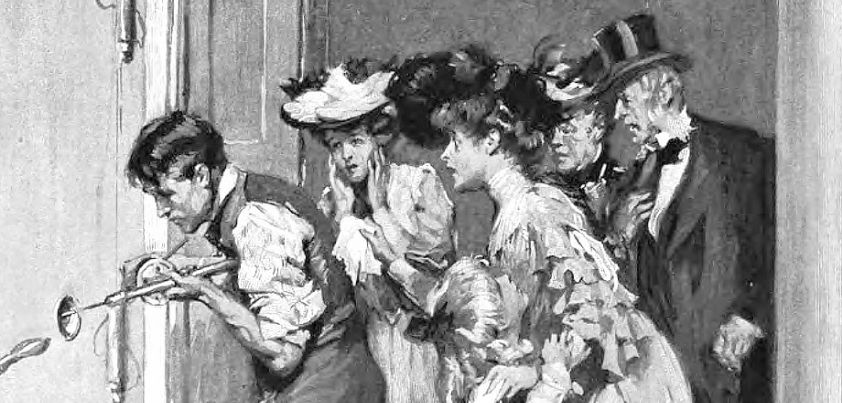 In this story from William porter (aka O. Henry), safe-cracker Jimmy Valentine gives up his life of crime for love. He changes his identity, builds a successful business, and becomes a model citizen. Unfortunately, police detective Ben Price is hot on Jimmy’s trail. The title reflects Price’s decision to let Jimmy “retrieve” his “reformed” life after witnessing him risk it all to save a child. Themes: love, reform, redemption and identity. Love succeeds in reforming Jimmy where the justice system had failed. Redemption comes with Jimmy’s potential sacrifice. A possible moral: there is a Ralph Spenser (good side) in everyone. More…
In this story from William porter (aka O. Henry), safe-cracker Jimmy Valentine gives up his life of crime for love. He changes his identity, builds a successful business, and becomes a model citizen. Unfortunately, police detective Ben Price is hot on Jimmy’s trail. The title reflects Price’s decision to let Jimmy “retrieve” his “reformed” life after witnessing him risk it all to save a child. Themes: love, reform, redemption and identity. Love succeeds in reforming Jimmy where the justice system had failed. Redemption comes with Jimmy’s potential sacrifice. A possible moral: there is a Ralph Spenser (good side) in everyone. More…